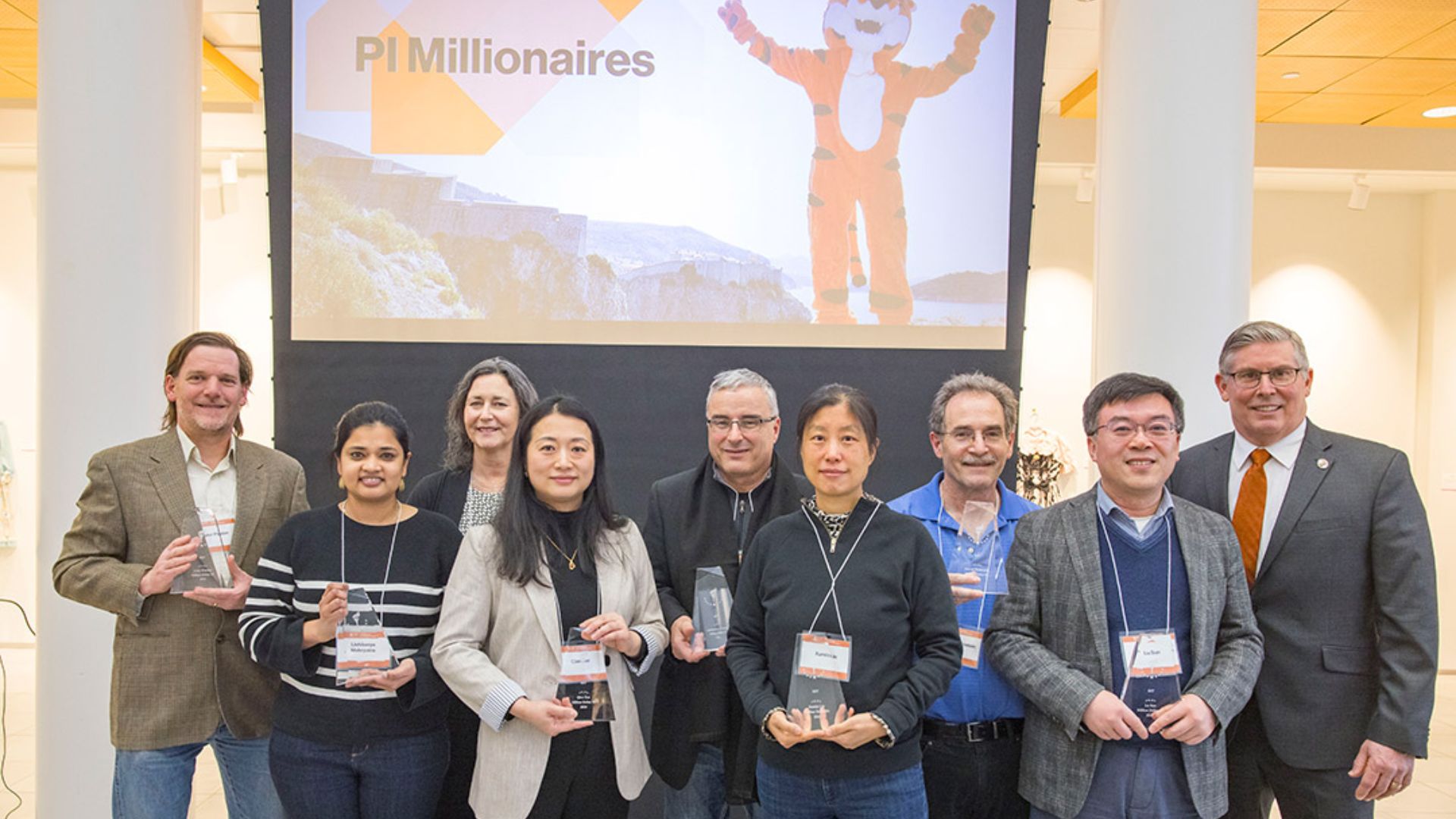Local News
Researchers at RIT receive recognition for pioneering innovations and surpassing major funding milestones across various fields

Rochester, New York – Rochester Institute of Technology (RIT) is celebrating the achievements of its faculty-researchers, recognizing their innovative projects and impressive funding milestones. The university’s commitment to research and technological advancement has been reflected in a record-breaking year of sponsored research awards, totaling nearly $103 million in the past fiscal year. This achievement highlights the dedication and expertise of RIT’s faculty, whose work spans a wide range of disciplines, including mental health, smart city technologies, gravitational waves, and nanotechnology.
At the heart of this success are ten faculty members who reached or surpassed $1 million in research funding, earning them induction into the prestigious PI Millionaires Club. These researchers were commended by Ryne Raffaelle, RIT’s vice president for Research and associate provost, during a special recognition event.
“There were over 800 proposals submitted, that was also a highwater mark, and we are on a record pace to beat the achievements of this past fiscal year,” said Raffaelle, emphasizing the continued growth of research efforts at the university.
Recognizing RIT’s Million-Dollar Researchers
Since 2001, more than 350 faculty-researchers at RIT have been honored as principal investigators leading multidisciplinary projects. The newest inductees represent a diverse array of research fields:
• Corey Crane, an associate professor in the College of Health Sciences and Technology, focuses on behavioral health, specifically developing interventions to improve treatment compliance and reduce recidivism rates.
• Agamemnon Crassidis, a professor in the Kate Gleason College of Engineering, is a leading figure in drone and UAV aircraft technology, specializing in advanced navigation and orientation sensing systems.
• Parsian Katal Mohseni, an associate professor in the Kate Gleason College of Engineering, works with nanotechnology, optoelectronics, and photonics to advance semiconductor industry workforce initiatives.
• Xumin Liu, a professor in the Golisano College of Computing and Information Sciences, is dedicated to artificial intelligence and data science education, striving to make programming more accessible for non-computing majors.
• Lishibanya Mohapatra, an assistant professor in the College of Science, studies intracellular structures using mathematical modeling to understand their function and formation.
• Lu Sun, a professor in the College of Engineering Technology, specializes in smart city innovations, including autonomous vehicles, infrastructure inspection, and workforce development for infrastructure jobs.
• Anna Christina (Christy) Tyler, a professor in the College of Science, conducts research on freshwater and marine ecosystems, with a focus on plastic pollution and ecosystem restoration.
• Steven Weinstein, the Harvey J. Palmer Professor in Chemical Engineering, is an expert in thin film flows and self-assembly processes for next-generation photonics applications.
• John Whelan, a professor in the College of Science, is a key figure in gravitational wave research and plays a leading role in the international LIGO-Virgo-KAGRA collaboration.
• Qian Xue, an associate professor in the Kate Gleason College of Engineering, integrates machine learning with computational modeling to study biological and biomedical applications, including voice production and sleep health.
Recognizing Emerging Research Talent
Beyond celebrating established researchers, RIT also recognized a new wave of promising faculty members who received Seed Funding awards. These grants provide essential support for early-stage research efforts and help faculty members develop competitive proposals for larger funding opportunities.
“This funding is provided to kick-start their research efforts. This is the future crop of PIs that will help RIT achieve future research success,” said Raffaelle, underscoring the university’s commitment to fostering new talent.
The latest recipients of Seed Funding awards include: Jun Han Bae, Sathwika Bavikadi, Carole Woodlock, Krittika Goyal, Mohammad Javad Khojasteh, Andrew Sonntag, MD Ahasan Habib, Frances Cooley, Ali Baheri, Ji Hwan Park, Sriniwas Mahapatro, Elliot Emadian, and Mihloti Williams.
Record-Breaking Year for Research Funding
RIT’s faculty-researchers secured an unprecedented level of funding from major national and state organizations, including:
• National Science Foundation (NSF): $20 million
• National Institutes of Health (NIH): $10 million
• Department of Defense (DOD): $23 million
• New York State: $17 million
These significant investments reflect RIT’s growing reputation as a leader in research and innovation. According to the most recent NSF Higher Education Research Development Survey, RIT ranks among the Top 50 private universities in research expenditures and is in the Top 15 private research universities without medical schools.
Driving Innovation Across Disciplines
The research projects at RIT are not just breaking financial records but are also making meaningful contributions to society. Faculty members are developing solutions for some of the world’s most pressing challenges, from improving mental health care to advancing renewable energy technology. Their work extends beyond academic recognition, influencing industries, shaping policies, and enhancing everyday life.
As RIT continues to build on this momentum, the university remains committed to supporting its faculty’s research endeavors, providing resources and recognition that foster an environment of innovation. With the achievements of both seasoned and emerging researchers, RIT is well-positioned to set new records in the coming years and further solidify its status as a research powerhouse.
With another milestone year in the books, RIT’s research community is proving that groundbreaking discoveries, technological advancements, and innovative thinking are thriving on campus, paving the way for a brighter future.

-

 Local News12 months ago
Local News12 months agoNew ALDI store close to Rochester to begin construction in late 2025 or early 2026
-

 Local News12 months ago
Local News12 months agoRochester Lilac Festival announces exciting 127th edition headliners
-

 Local News10 months ago
Local News10 months agoCounty Executive Adam Bello and members of the county legislature celebrate exceptional young leaders and advocates at the 2025 Monroe County Youth Awards
-

 Local News10 months ago
Local News10 months agoThe 2025 Public Market Food Truck Rodeo series will begin this Wednesday with live music by the Royal Bromleys